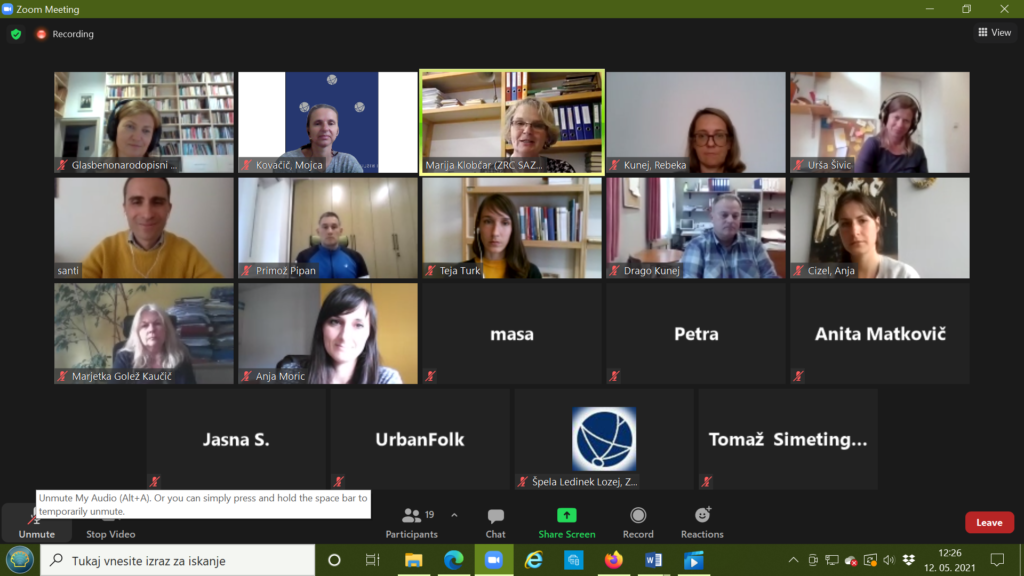Appropriation of musical cultural heritage for ideological purposes
The Institute of Ethnomusicology ZRC SAZU organized an online lecture by Matej Santi, a native of Trieste who studied violin and musicology in Trieste, Klagenfurt and Vienna. He is a postdoctoral researcher at the University of Music and Performing Arts of Vienna, where he is involved in the research project Telling Sounds. His main research interests are music and identity, music in audiovisual media, music in Central Europe and the history of violin making. The lecture by Matej Santi was devoted to the question of the role of music in the formation of collective identities and the appropriation of musical heritage for political and ideological purposes. Using selected examples from his research, the speaker highlighted the multifaceted function of musical speech and discourses about music in written and audiovisual sources. The introductory consideration of the role of musical practices and their medialization in the newspaper of the Italian, Slovenian and German language communities in Trieste until 1918 was followed by an outline of an example of cultural appropriation during fascism in Italy. At the founding of the violin making school in Cremona in 1938, in which Franjo Kresnik from Sušak also participated during the worst denationalization policies in Primorska and Istria, the regime produced audiovisual propaganda material based on the medialization of the Stradivari myth. These themes were further highlighted by an analysis of the radio broadcasts of Austrian emigrant Jimmy Berg from the Cold War era, which testifies to the ideological implications of the use of musical cultural heritage in the formation of transcontinental collectives. The lecture of Matej Santi has addressed through interesting selected topics the problem frame of connections and dividing lines, which the project Song Reflections on Intercultural Coexistence of the Institute of Ethnomusicology ZRC SAZU and the program Heritage on the margins take up.

